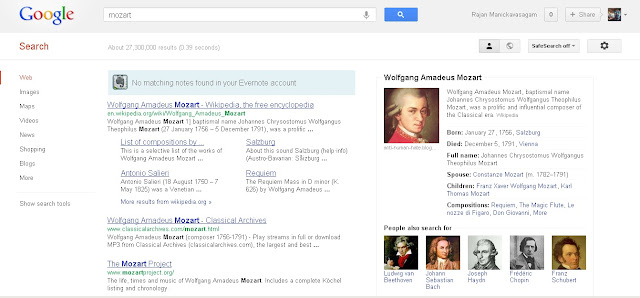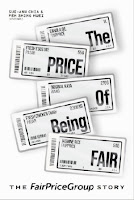Tech - Search: Curation versus Algorithm
For those who remember the early days of the internet, they will be familiar with the free web hosting sites like Geocities. Before Geocities was taken offline, it's content was archived and is now available for download as a 650 GB torrent. While this seems like a large amount of data, it is estimated that around 2,551,568,697 GB data per day was created in 2011! While the earlier days of the internet were largely image and text based content, data today is in the form of images, text, social media posts, videos, businesses, services and user generated content.
All this only increases our dependency on search engines. More than the challenge of indexing all the data, search engines are starting to grapple with relevancy of results. The added complication is that some of the social media and other sites are not publicly available to be indexed. The two main search engines - Google and Bing seem to be taking markedly different approaches. Fundamentally, the approach is relying on either algorithms (by Google) or curation (by Bing). Let's look at their recent updates.
Power of algorithm
 |
| Google Search |
In the above example, search for 'mozart' on google. The first set of results are all centred around Mozart, the music composer. So, how does Google do it? The recent updates to the search include the 'knowledge graph'. According to Google, this graph contains all the real-world entities and their relationships. It is a bold aim and I wouldn't be surprised if there was an element of curation in building the graph.
Power of crowd
 |
| Bing Search |
Bing has decided to take a different approach. Rather than building an context-aware graph, it has decided to use the existing real-world connections. In the example above (currently available only in the US), a search for 'movies' shows the results from the search engine. In addition, it also shows results from your social graph (for now twitter and facebook). Of course, you need to be signed into all these services. Currently, Bing is a distant second in the search engine market. It will be interesting to see what kind of impact this latest update has.
What Next
But, what has not been solved so far is the 'intent' of the search query. There are times when we want to be influenced by our real-world connections and there are times when we want a fresh perspective. It will be interesting how Google and Bing solve this problem.
Also, how far will we take curation? For example, in most cases, currently there are algorithms which power everything - right from the balancing of books in a finance software to recommending music to users. Will some of these be replaced by curation?
While we will continue to have algorithms, there is definitely potential for curation too. I think we have barely begun to scratch the surface.


Comments
Post a Comment